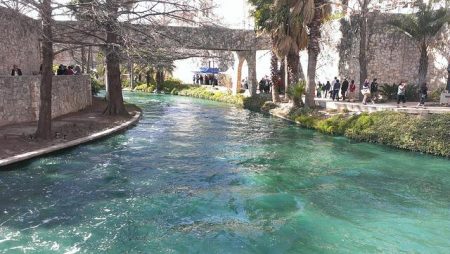Advancing Medical Innovation: Highlights from the MEDCoE Graduate Research and Education Symposium at UT Health San Antonio
Showcasing Pioneering Graduate Research in Biomedical Sciences
The University of Texas Health Science Center at San Antonio recently hosted the Military Emergency Medicine Center of Excellence (MEDCoE) Graduate Research and Education Symposium, a premier event spotlighting groundbreaking research by graduate students. This symposium provided a vibrant platform for emerging researchers to present their latest scientific discoveries across a spectrum of biomedical fields. The event emphasized the translation of academic research into practical healthcare solutions, reinforcing UT Health San Antonio’s role as a leader in medical education and military healthcare preparedness.
Presentations spanned a variety of cutting-edge topics, including:
- Innovative treatment modalities addressing chronic and acute illnesses
- Computational biology and predictive analytics for patient prognosis
- Advances in regenerative therapies and biomaterials engineering
- Next-generation diagnostic technologies for early disease identification
A highlight of the event was the poster competition, where participants distilled complex research into engaging visual presentations. Below is a summary of the top award recipients, their research themes, and departmental affiliations:
| Researcher | Project Focus | Department |
|---|---|---|
| Isabella Martinez | Gene Editing Techniques for Sickle Cell Disease | Genetics & Genomics |
| David Kim | Neurodegenerative Disease Mechanisms in Parkinson’s | Neuroscience |
| Sophia Nguyen | Machine Learning Applications in Medical Imaging | Biomedical Engineering |
Fostering Interdisciplinary Collaboration and Educational Synergy
The symposium served as a nexus for graduate students, faculty, and healthcare professionals to engage in meaningful dialogue and collaborative learning. By emphasizing the importance of cross-disciplinary partnerships, the event nurtured an environment where innovative ideas could flourish. Participants exchanged knowledge that spanned clinical medicine, public health, and biomedical technology, underscoring the collective effort required to tackle complex medical challenges.
Key components of the symposium included:
- Interdisciplinary research showcases highlighting novel methodologies and integrative approaches
- Skill-building workshops and expert panels designed to equip attendees with essential competencies for modern healthcare careers
- Networking sessions facilitating connections among academic institutions, industry leaders, and military medical personnel
| Participant Group | Count | Primary Focus Areas |
|---|---|---|
| Graduate Researchers | 50 | Biomedical Sciences, Epidemiology |
| Faculty Members | 35 | Clinical Research, Medical Education |
| Industry Experts | 20 | Health Technology, Innovation Management |
Exploring Breakthroughs in Medical and Defense Technologies
The symposium also highlighted transformative technologies at the intersection of healthcare and defense. Presenters unveiled state-of-the-art biosensors capable of continuous physiological monitoring in challenging environments, alongside AI-powered diagnostic platforms tailored for rapid decision-making in combat zones. These innovations exemplify the critical role of interdisciplinary research in enhancing both patient outcomes and military operational readiness.
Featured technological advancements included:
- Wearable health monitors integrated with AI for early detection of physiological stress
- Cutting-edge prosthetic devices combining neuroengineering and robotics
- Robotic-assisted surgical systems optimized for austere and mobile medical units
- Robust cybersecurity frameworks protecting sensitive medical data in deployed settings
| Innovation | Use Case | Benefit |
|---|---|---|
| Intelligent Biosensors | Continuous Health Surveillance | Timely Identification of Health Risks |
| AI-Enabled Diagnostics | Combat Zone Medical Triage | Accelerated Treatment Decisions |
| Neuroprosthetic Technologies | Enhanced Mobility for Injured Personnel | Improved Rehabilitation Outcomes |
| Robotic Surgery Platforms | Field Surgical Interventions | Increased Precision and Safety |
Strategies to Elevate Future Graduate Research Symposia
To maximize the impact of forthcoming symposia, organizers are encouraged to deepen interdisciplinary integration by inviting diverse research domains to collaborate. Introducing more interactive elements such as hands-on workshops and simulation exercises can boost participant engagement and practical learning. Expanding networking beyond formal sessions through informal gatherings and mentorship programs will foster sustained professional relationships and collaborative opportunities.
- Expand cross-disciplinary discussion panels to highlight integrative research innovations.
- Adopt hybrid event models combining in-person and virtual participation to broaden accessibility.
- Establish structured mentorship initiatives linking early-career researchers with seasoned experts.
Enhancing logistical aspects is equally vital. Streamlining abstract submission and review with automated platforms can improve efficiency and fairness. Providing clear, user-friendly schedules both online and offline will help attendees navigate concurrent sessions effectively. Additionally, introducing awards recognizing emerging research themes and collaborative efforts can motivate participants and celebrate diverse scientific contributions.
| Focus Area | Recommended Action | Anticipated Benefit |
|---|---|---|
| Abstract Submission | Utilize automated review software | Accelerated and impartial evaluation |
| Event Format | Implement hybrid virtual/in-person attendance | Wider participant inclusion |
| Networking | Create themed mentorship groups | Stronger professional networks |
Conclusion: Inspiring the Next Wave of Medical Innovators
The MEDCoE Graduate Research and Education Symposium at UT Health San Antonio reaffirmed the institution’s dedication to nurturing innovation and collaboration within the medical research community. By uniting emerging scholars, experienced faculty, and industry leaders, the event illuminated transformative scientific advancements and fostered a collaborative spirit essential for future breakthroughs. Participants departed with renewed motivation and valuable connections, poised to contribute to the evolving landscape of health science research and military medical readiness.



